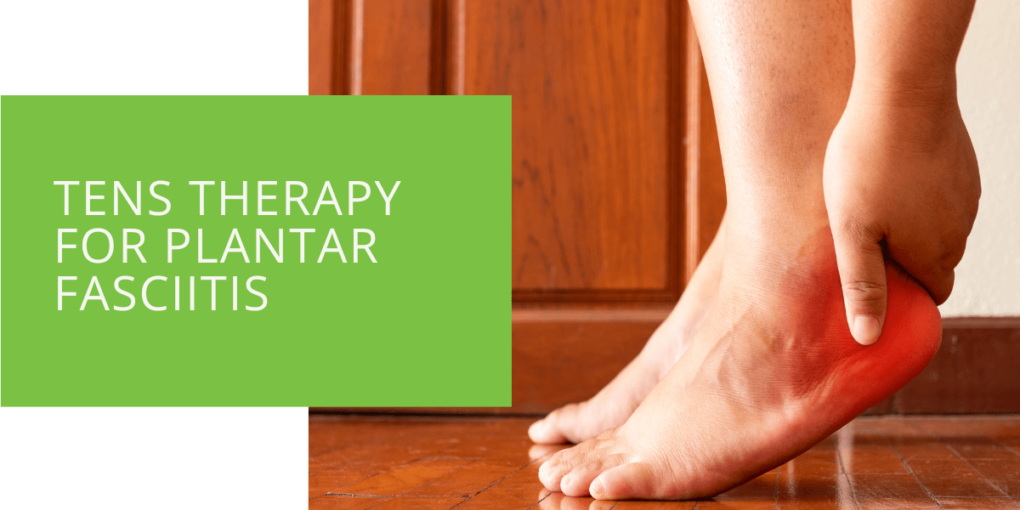TENS Therapy for Plantar Fasciitis
Plantar fasciitis is a common foot condition that causes pain and discomfort in the heel and arch of the foot. It is often the result of overuse or strain on the plantar fascia, a band of tissue that runs along the bottom of the foot and connects the heel bone to the toes. If you are experiencing pain in your heel or arch and have not been able to find relief through other methods, you may want to consider TENS therapy as a treatment option.
What is Plantar Fasciitis?
Symptoms
Plantar fasciitis is characterized by pain and discomfort in the heel and arch of the foot, often brought on by activities such as walking or standing for long periods of time. The pain is usually the worst first thing in the morning or after periods of inactivity, and may improve with movement. Other symptoms may include swelling, stiffness, and difficulty bending the foot.
Causes
Plantar fasciitis is often caused by overuse or strain on the plantar fascia. This can be the result of activities such as running or other high-impact exercise, standing for long periods of time, or wearing shoes that do not provide enough support. It can also be caused by certain medical conditions, such as obesity or flat feet, or by poor foot posture.

What is TENS Therapy?
How Does TENS Therapy Work?
TENS, or transcutaneous electrical nerve stimulation, is a form of pain management that uses low-voltage electrical currents to stimulate the nerves and block pain signals from reaching the brain. It is often used to treat a variety of conditions, including chronic pain, arthritis, and muscle spasms.
During a TENS therapy session, electrodes are placed on the skin near the area of pain. The electrodes are connected to a TENS unit, which delivers the electrical currents to the electrodes. The intensity and frequency of the electrical currents can be adjusted to suit the patient's needs.
TENS Therapy for Plantar Fasciitis
Benefits of TENS Therapy for Plantar Fasciitis
TENS therapy has been shown to be an effective treatment option for plantar fasciitis. It can help reduce pain and inflammation, improve circulation, and promote healing in the affected area. TENS therapy is also non-invasive and has no known side effects, making it a safe and convenient treatment option for many people.
Risks and Precautions
While TENS therapy is generally considered safe, there are some precautions that should be taken. It is not recommended for people with pacemakers or other implanted electrical devices, or for pregnant women. It is also not recommended for people with certain medical conditions, such as epilepsy or heart disease. If you have any concerns about using TENS therapy for plantar fasciitis, it is important to consult with a podiatrist or other healthcare professional.

Conclusion
TENS therapy may be an effective treatment option for people with plantar fasciitis who have not found relief through other methods. It is non-invasive, has no known side effects, and can help reduce pain and improve circulation in the affected area. However, it is important to consult with a podiatrist or other healthcare professional before starting TENS therapy to ensure that it is safe and appropriate for your individual needs.
It is also important to note that TENS therapy is usually used in conjunction with other treatments, such as stretching and strengthening exercises, ice and heat therapy, and orthotic inserts. Your podiatrist may recommend a combination of these treatments in order to achieve the best results.
If you are experiencing pain and discomfort due to plantar fasciitis, it is important to seek medical attention. A podiatrist can help diagnose the cause of your symptoms and recommend a treatment plan that is tailored to your individual needs. With the right combination of treatments, including TENS therapy, it is possible to find relief and get back to your normal activities.
FAQ
What is TENS therapy, and how does it work?
TENS, or transcutaneous electrical nerve stimulation, is a form of pain management that uses low-voltage electrical currents to stimulate the nerves and block pain signals from reaching the brain. During a TENS therapy session, electrodes are placed on the skin near the area of pain and are connected to a TENS unit, which delivers the electrical currents to the electrodes. The intensity and frequency of the electrical currents can be adjusted to suit the patient's needs.
Is TENS therapy effective for foot pain?
TENS therapy has been shown to be an effective treatment option for conditions such as plantar fasciitis, which causes pain and discomfort in the heel and arch of the foot. It can help reduce pain and inflammation, improve circulation, and promote healing in the affected area.
How is TENS therapy administered?
TENS therapy is typically administered through the use of electrode pads, which are placed on the skin near the area of pain. The electrodes are connected to a TENS unit, which delivers the electrical currents to the electrodes. The placement of the electrode pads and the intensity and frequency of the electrical currents can be adjusted to suit the patient's needs.
Is TENS therapy a drug-free option for pain relief?
Yes, TENS therapy is a drug-free option for pain relief. It does not involve the use of medications or other substances and has no known side effects.
Are there any risks or precautions to consider with TENS therapy?
TENS therapy is generally considered safe, but there are some precautions that should be taken. It is not recommended for people with pacemakers or other implanted electrical devices, or for pregnant women. It is also not recommended for people with certain medical conditions, such as epilepsy or heart disease. If you have any concerns about using TENS therapy, it is important to consult with a healthcare professional.

